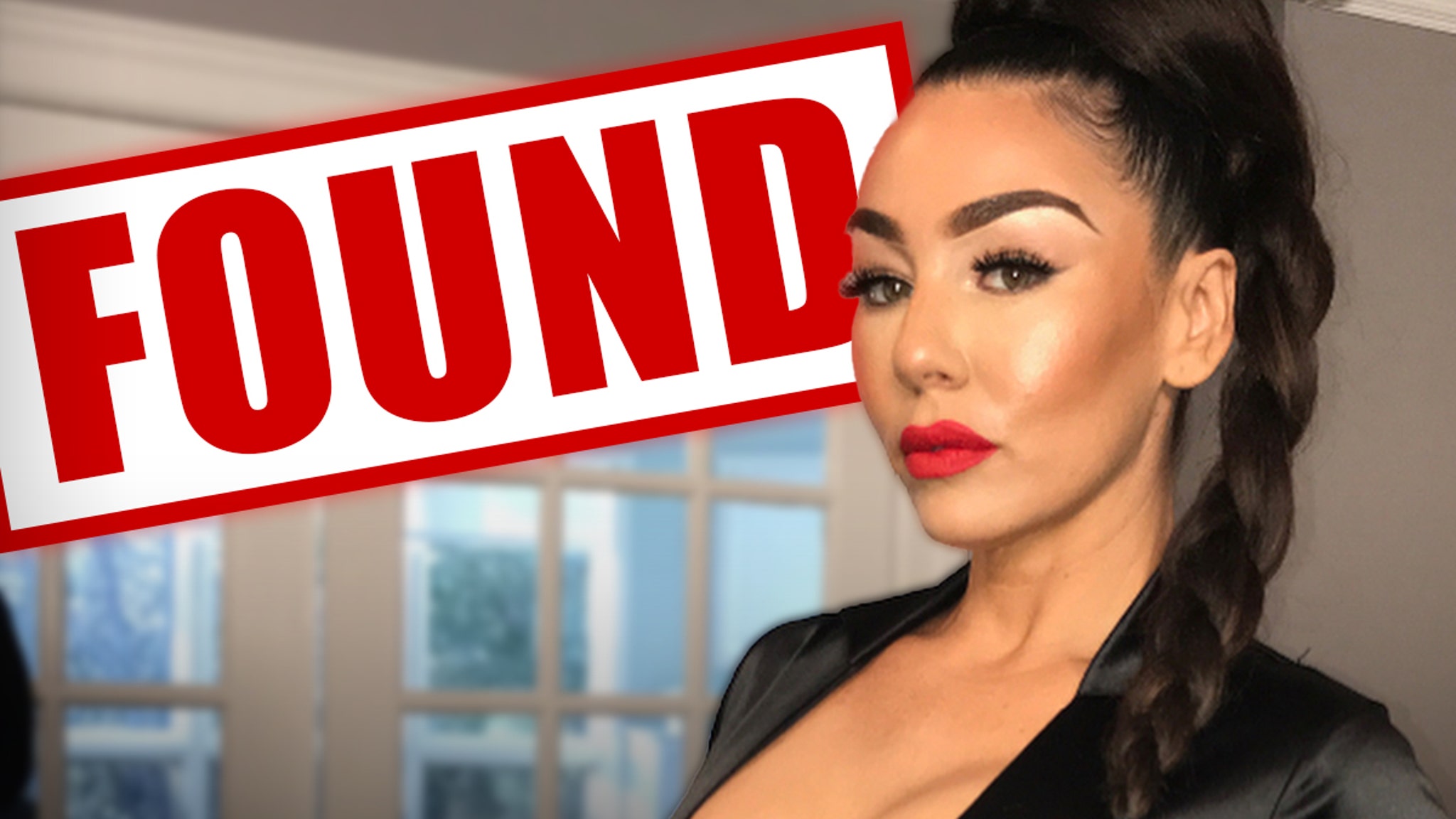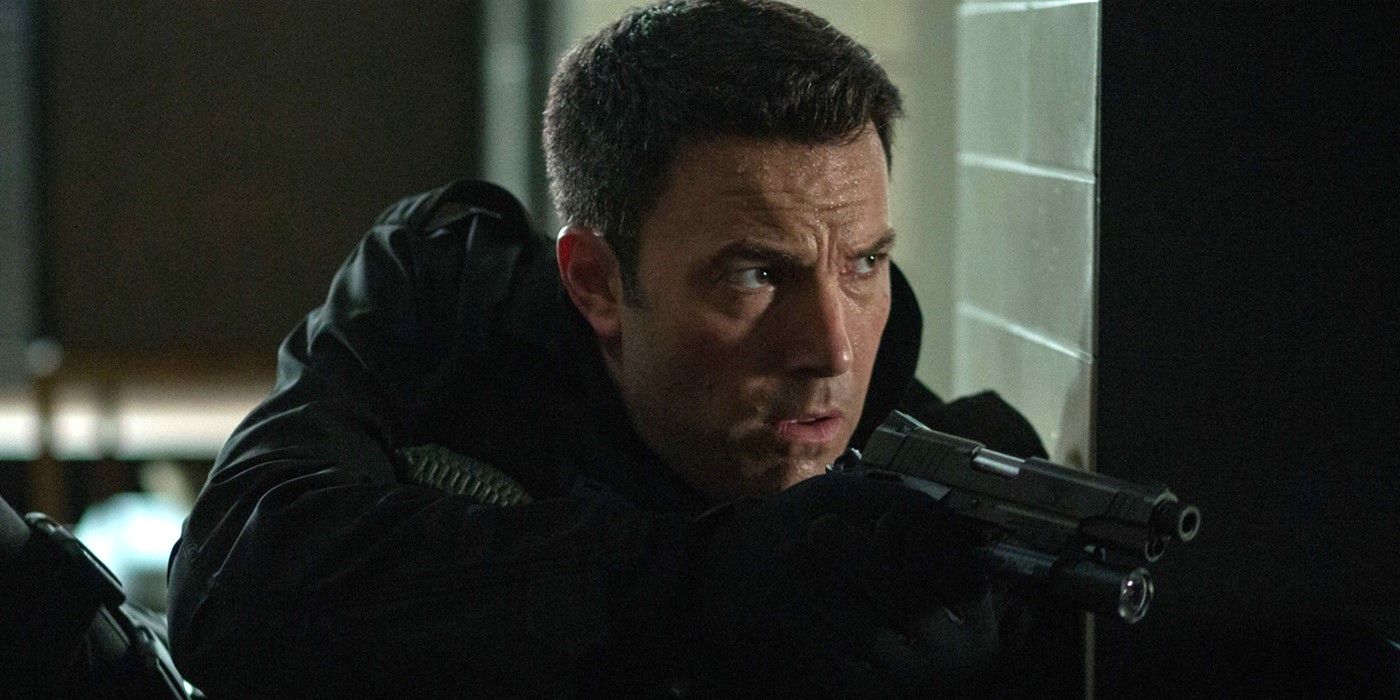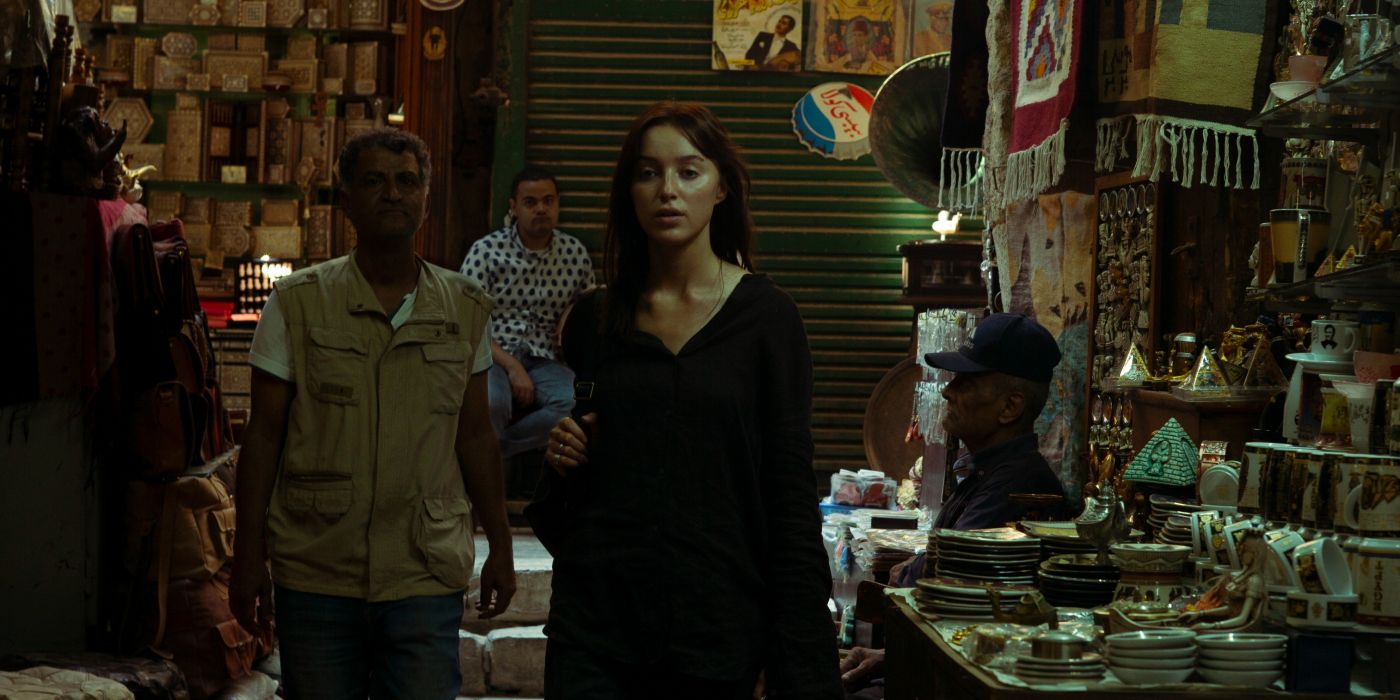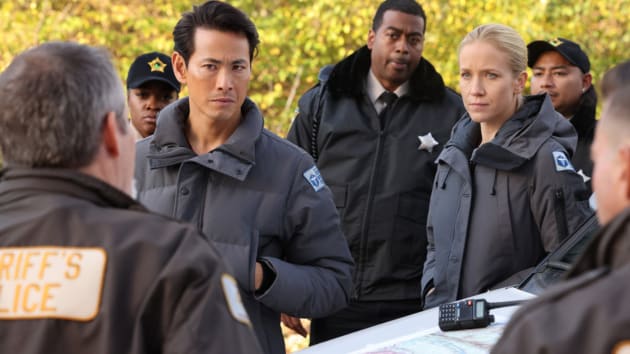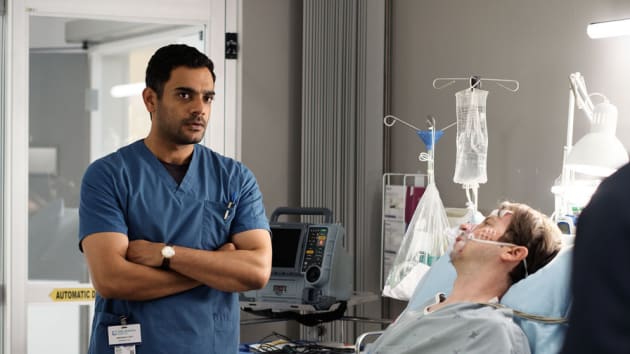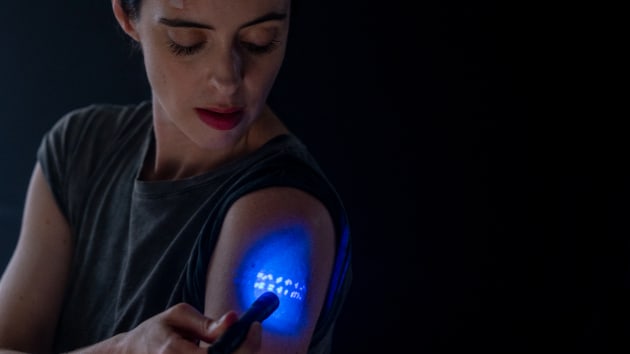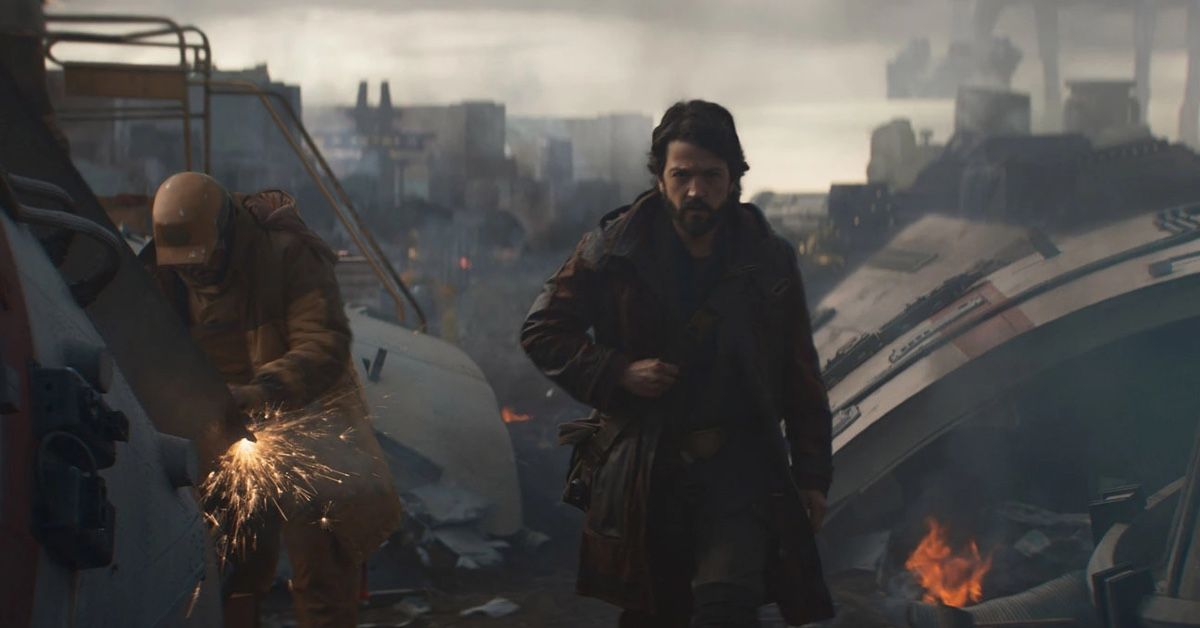Hospital dramas love the evil corporate takeover trope, but not Chicago Med.
While Gaffney Medical Center may now belong to Jack Dayton, he’s not heartless or evil, and so far, he isn’t trying to cut costs in ways that destroy the hospital’s ability to provide health care.
On Chicago Med Season 8 Episode 10, Will was aggravated, and Archer was skeptical, but Dayton came through for a patient who needed him in the end. There’s no telling how long it’ll be before he does something problematic. Right now, though, this is a nice departure from the usual.
Like most hospital owners, Jack was more absent than anything else (how often was the previous owner at Med?). Archer’s skepticism over Dayton’s intentions matched my own.
Halstead: A brand new coffee machine?
Archer: Courtesy of our new pal Jack Dayton.
Halstead: I hope this courtesy extends to patient care.
Archer: Don’t hold your breath.
Asher: Dean refuses to be swayed by Jack Dayton’s toys and sweets.
Archer: Haven’t you ever heard of Hansel and Gretel?
Halstead: You think Dayton wants to eat us?
He had ads for OR 2.0 everywhere and made token gestures such as offering a new coffee maker and donuts for staff, suggesting he cared more about getting people to use the 2.0 tech than anything else.
Still, Will’s castigation was on the harsh side. Hospital owners don’t usually visit patients. Dayton’s initial refusal to help convince Sophia to have the surgery when he had somewhere else to be didn’t seem all that unreasonable.
Although Dayton didn’t like the way Will spoke to him, it awakened his passion for helping others, and he was able to save the day. So is he so bad?
Will was lucky his angry approach worked and that Dayton is not the kind of vindictive venture capitalist who fires people or makes their lives miserable when they cross him. Wouldn’t it have been better to ask Marcel to talk to Dayton instead of Will doing it at all?
Marcel and Dayton have an excellent working relationship, even if Marcel is reluctant to exploit it. Marcel could probably have gotten through to Dayton without the semi-unfair rant.
Marcel was busy elsewhere, thanks to his complicated surgery with the 2.0 technology.
I was confused as to why Roy’s case was the one that would allow 2.0 to revolutionize medicine. Wasn’t the other case Marcel did using 2.0 supposed to do that?
Marcel was angry at the time about all the tech gurus and media personalities observing the previous surgery, so it seemed like the test case had already happened.
In some ways, Roy’s case felt like a rerun of that one.
Marcel didn’t want to do the surgery, but Dr. Duvrey talked him into it.
The technology said the surgery was too risky because it was set to be overly conservative; Duvrey changed a setting, and then it was helpful.
And in the end, a seemingly impossible surgery was a success.
Doctor Duvrey: The AI isn’t perfect yet, but it’s evolving.
Marcel: Hope I am too.
If the 2.0 technology is going to stick around — which it appears it will — let’s hope that Marcel gets a different type of story involving its use. This repeated beat about Marcel vs. an overly conservative AI surgical assistant is already getting old.
So far, the AI’s most valuable features seem to be its ability to show 3-D images of CT scans, prototypes of the patient’s body, and other graphics that can aid surgery. Its attempts to recommend surgical techniques leave a lot to be desired.
If Marcel is going to be the primary surgeon using the AI, he should go over various settings with Dr. Duvrey to make sure they are appropriate before doing any further work with the AI.
Duvrey continually needing to override settings is silly and impractical; either the tech is set correctly to do surgery, or it isn’t, and having to change settings in the middle of surgery wastes time that the patient might not have.
Marcel said he hopes he is evolving along with the tech; was that a coded suggestion that he and Duvrey might grow to like, respect, and love one another?
Marcel hasn’t been lucky in love, and he initially didn’t want to work with Dr. Duvrey or the 2.0 tech. Enemies-to-lovers is a tried and true romantic trope, so why not?
I’m not sure how I feel about Dr. Charles’ storyline.
The trope of the dying guardian who doesn’t know what to do for their disabled relative pops up all too often on medical dramas. In this case, I found it disturbing that a grandmother suffered zero consequences after trying to murder her developmentally disabled grandson.
Autism is too often portrayed as a tragic disorder that makes people a burden on their relatives, and this story was no exception.
Alexander was developmentally disabled and possibly autistic (something which was never determined during the hour); his grandmother was the only person he trusted, so she saw no way he could live without her.
This might have been a moving storyline if Dr. Charles had done what he usually does: talk extensively with the patient to learn her history, and why she was so damn convinced she was the only one who could take care of her grandson.
Instead, we got no backstory whatsoever, and Alexander didn’t even get a definitive diagnosis for his developmental disability. His grandmother tried to poison him so he wouldn’t have to live without her, only to get a big hug from him while Charles looked upset.
It may have been inadvertent, but this reinforced the idea of autism as so difficult to live with that few people will be willing to take on the burden. The grandmother’s explanation was ridiculous, too.
She said that Alexander had not done well in group homes in the past. Presumably, the people who run these homes know how to deal with someone with Alexander’s issues.
Why did no one ever try to help him adjust to a new situation?
This is so disappointing because Chicago Med usually does psychiatric or mental health storylines better than most other shows, but this one was sub-par.
Lieu and Asher went on a search-and-rescue mission after learning a pregnant woman was stranded somewhere in the woods.
I’m not usually a fan of these doctor-outside-the-hospital stories, especially if the doctors need to MacGyver a treatment out of items in the environment. This one was okay, though it was unrealistic that Tiffany had as few injuries as she did and could deliver a healthy baby after being lost in the woods following a car accident.
What did you think, Chicago Med fanatics? Hit the big, blue SHOW COMMENTS button and let us know!
Don’t forget you can watch Chicago Med online.
Chicago Med airs on NBC on Wednesdays at 8 PM EST / PST.
Edit Delete
Jack Ori is a senior staff writer for TV Fanatic. His debut young adult novel, Reinventing Hannah, is available on Amazon. Follow him on Twitter.
You can view the original article HERE.
